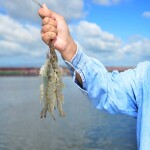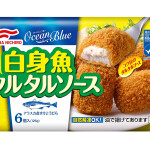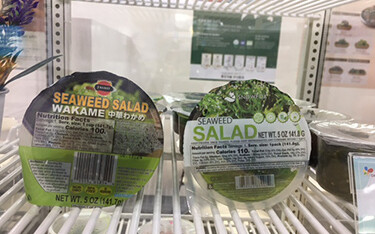Chris Loew reports from Osaka, Japan as a contributing editor for SeafoodSource.com. In addition to writing for SeafoodSource.com, he covers Japan for
Author Archive
Mitsubishi and Maruha Nichiro have established a joint venture called “ATLAND Corporation” to farm Atlantic salmon on land using proceeds from Japan’s first blue bond.
Through the joint venture Mitsubishi and Maruha Nichiro plan to build a land-based recirculating aquaculture system (RAS) facility with a capacity of 2,500 metric tons (MT) (live weight equivalent) in Nyuzen Town in Toyama Prefecture, aiming to start operations
… Read MoreThe North Pacific Fisheries Commission (NPFC) held a special meeting on 18 October to reschedule the Seventh Annual Session of the Commission of the North Pacific Fisheries Commission (NPFC) after postponement caused by complications of Russia's invasion of Ukraine.
The NPFC's subsidiary bodies, such as administrative and scientific committees, will now meet 18 to 25 March, 2023 in Japan, and the commission itself will meet from 23 to 25
… Read MoreThe amount of saury landed in Japan is increasing, bringing some relief to Hokkaido and northeast Honshu fishermen.
Early on in the season, which opened in mid-August, Japan's saury catch was at its lowest level ever. At that time, schools of the fish were mainly in international waters, about three days from Japanese ports in Hokkaido. But to reach them in a straight line, fishing vessels had to cross through Russian waters.
Given the
… Read MoreProximar Seafood shareholders have approved a resolution to issue a convertible bond worth between NOK 150 million and NOK 250 million (USD 14.2 million and USD 23.8 million, EUR 14.4 million and EUR 24.1 million).
The funds will enable the company to begin its production phase and partly secure its further funding needs for its planned recirculating aquaculture system (RAS) facility near Japan's Mount Fuji, according to
… Read MoreEven as eco-labels gain more market traction in Japan, the number of Marine Stewardship Council (MSC) certified fisheries in the country remains low.
There are eight named MSC fisheries in Japan, but some of these fish for multiple species. MSC counts named fisheries according the number of number of species fished (e.g., a named fishery that fishes for both bonito and albacore is counted as two certified fisheries.). By this counting
… Read MoreRussian seafood exports continue to flow into Japan, despite revoking Russia’s most-favored-nation status in March 2022 in response to Russia’s invasion of Ukraine.
The total value of all of Japan’s imports of Russian seafood in 2020 was JPY 103.9 billion (USD 900 million, EUR 900 million), representing about 7 percent of Japan’s seafood imports.
According to the Japanese Ministry of Finance,
… Read MoreA small business ecosystem is forming around Japan’s nascent land-based vannamei shrimp production.
At the 24th Japan International Seafood and Technology Expo, held at Tokyo Big Sight 24 to 26 August, Tokyo-based IMT Engineering Co., promoted its proprietary "Indoor Shrimp Production System (ISPS)” as it had at the previous year’s show. But this year, there were additional related booths – one for the Indoor Shrimp
… Read MoreNew types of seaweed are becoming popular in Japan as “functional foods,” or “nutraceuticals,” foods with specific health benefits. This is partially because unlike in Western countries, where consumers prefer dietary supplements in the form of pills, Japanese prefer to directly consume foods that contain beneficial compounds.
Companies marketing seaweed products in Japan are aided by a law allowing medical claims in
… Read MoreAt the 24th Japan International Seafood & Technology Expo in August, one of the aisles had the appearance of a ghost town – with many booths unstaffed and no product on display.
The desolate scene was the result of China’s “zero-COVID” policy, which prevented the Chinese staff meant to be in the booths – organized by the China Aquatic Products Processing and Marketing Alliance – from traveling overseas.
… Read MoreThe Pew Charitable Trusts and Member of European Parliament Clara Aguilera are among those leading a call for the International Commission for the Conservation of Atlantic Tunas (ICCAT) to adopt a bluefin tuna harvest strategy at its November 2022 meeting.
Pew and Aguilera co-hosted a 9 September webinar that included scientists and representatives from various segments of the European Union bluefin fishing and ranching industry to call for
… Read More















